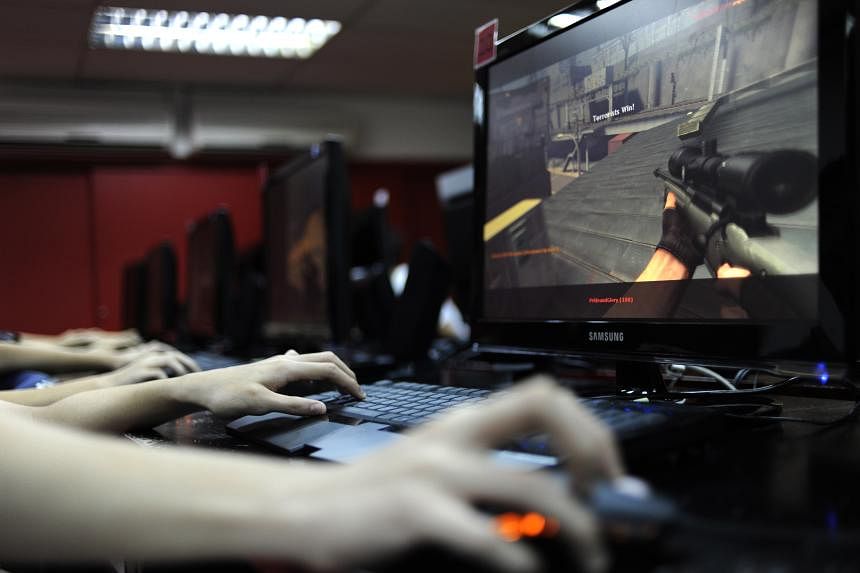SINGAPORE - For nearly a year in 2019, Kelly (not her real name) did not leave her room, except to use the toilet. She slept in the day and woke up just to play computer games, often till the wee hours of the morning.
It was not uncommon for the then 15-year-old girl to go a week without showering.
Mental health case worker Mandy Yang recalled how Kelly’s hair fell to her hips when she first saw her, because she had not gone for a haircut for so long.
In the first few months when she missed school, her school principal visited her. But that soon stopped when she closed up and could not trust anyone from her school. She also shut out two close friends, who visited her occasionally.
She started to drop off the grid. “I just didn’t want to see anyone, not even my close friends. I didn’t really have the energy to keep up a conversation at that point. It was just very draining.
“There was a part of me that really wanted to go to school and have a normal life with other people. But at that point, I kind of just gave up on my life,” said Kelly, who is now 20.
Kelly is among more than 30 reclusive youth who have received help from charity Impart since 2021. Around half of them have managed to come out of reclusion.
These young people are also known as “hidden youth” or “hikikomori”, a Japanese term that refers to youth who withdraw from society and isolate themselves at home for extended periods of time. About 2 per cent of people in Japan, or around 1.46 million people, identify as hikikomori.
There are no national statistics on the phenomenon in Singapore, although there has been a steady rise in the trend in developed countries, especially in Asia.
Who are these reclusive youth?
Impart, which helps young people facing adversities, has a crisis response initiative Imna, which provides a first line of psychological support for youth. Volunteers are paired with youth to build a safe space for them to express themselves and increase stability in their lives over six months.
Impart’s deputy executive director Joshua Tay said his organisation is seeing more cases of reclusive youth, spanning a wide range of reasons including bullying, conflict with parents or mental health issues.
“Social media and gaming definitely has been a trigger point, or can enable the behaviour. But it’s a complex phenomenon.”
Some youth may need much more than six months. “In these cases, we just try to be as innovative or creative in understanding them, relating to them in different ways,” said Mr Tay. To communicate with a non-verbal youth who did not leave home for three years, his Impart case worker messaged him through online platform Discord while sitting next to him.

Mr Tay said volunteers help the youth figure out their motivations and pathways towards their goals. “The underlying theme is to work together with the youth – not to feel like they are the problem – but against whatever they might be feeling.”
He added: “For a lot of youth cases, we see a crisis of hopelessness. A lot of it is helping them to see that there are people who can help them along in believing in themselves again.”
Bullying made her afraid of people
In Secondary 2, Kelly, an only child, transferred to another school after being repeatedly bullied in primary and secondary school. She said there was also tension with her mother, a housewife, who resorted to hitting her when she was growing up. Her father works full-time, although she does not know what he works as.
Her best friends in primary school – whom she deemed closer to her than her own parents – had turned against her, ostracising her and talking about her behind her back.
Similar incidents happened in secondary school, even after she moved to another school for a fresh start. “It got me thinking, is it a ‘me’ problem?” she said.
She became afraid of people.
She started to dread going out in public, especially seeing students in school uniforms and being on the train. “Even when people are just talking among themselves, I feel like they’re talking about me.”
Midway into Secondary 2, which she repeated, she stopped going to school entirely.
Her mother’s efforts to make her go back did not help. “She pressured me more. She kept telling me to go to school. It made me feel like she didn’t really care about what was going on at school. She just wanted me to go to school to study.
“Everything I told her, like it made me feel like it’s my fault instead. I think gradually I just didn’t tell her anything.”
Online games became her only refuge. “That was my way of making friends. It’s safer in a way where (online friends) don’t know me and I don’t know them and then I can share whatever I want.”
But when the screen turned black, she was alone again.
She would often spend hours in the toilet thinking about her life, and when her mother banged on the door, she would turn on the tap to pretend she was showering. More than once, she fell asleep in the toilet.
“I thought: Relationships in my life ‘cmi’ (cannot make it), then my studies ‘cmi’ also, then I myself also ‘cmi’.”
A year passed in a blur. Things took a turn when a Child Protection Officer from the Ministry of Social and Family Development referred Kelly’s case to Impart, and two volunteers from Impart knocked on her door in January 2021.
“She said very few words. When we asked her anything, she would give one-word answers,” recalled Ms Yang.
It was by coincidence that she realised she and Kelly shared a common interest in computer games, which helped to break the ice.
The volunteers visited her every two weeks, and after several sessions began making plans with her to venture outside. She took her first steps out to McDonald’s near her home in Sembawang around March 2021.
Over the next six months, they met for lunch at places farther and farther from home.
A hand came when he needed it
Joel (not his real name) felt the same sense of helplessness when he stayed home for nearly 1½ years from June 2021 to October 2022. He was then 15 and had fallen behind in his studies, needing to repeat Secondary 3.
After he got bored with gaming for six months, he spent entire days in bed for another six months, stepping outside only to collect food that he had ordered online. He was awake from midnight to 6am and slept the rest of the day.
“I had no motivation, and I didn’t know what I wanted in life. I felt mostly numb,” said Joel, who is now 18. The older of two boys lives with his grandmother and mother, who works as a sales manager. His parents live separately.
“I was hoping for opportunity and options, but I didn’t know what was possible for me any more.”
For Joel, it was Impart’s boxing programme for troubled young people, a collaboration with boxing gym Spartans Boxing Club, that got him out of the house.
He was sceptical when his case worker Calvin Leong brought up the idea of group therapy with nine other youth as part of the three-month boxing programme. But it helped him understand himself and his motivations for life better.
He also grew to enjoy going for the sessions from November 2022 to February 2023. “When you hear someone share their own story, it becomes less embarrassing to share your own,” he said.
He went back to school midway through the programme and came back to volunteer after he completed it.
Mr Leong said youth befrienders in the programme share their successes and setbacks with the group.
Joel did not score well for the O levels due to the short time he had to prepare, but is undaunted. “I still feel hopeful,” he said.
He hopes to study hard and eventually study cyber security at university. “I want to have the financial freedom to support my loved ones.”
Looking back, Kelly does not see her time at home as a waste. She still keeps in touch with friends from abroad she met on online game MapleStory.
She grew in confidence, and eventually found an administrative job with a crystal shop’s website.
For the first time, she is content with her job and currently has no plans to continue her education. “I don’t think I’m very ambitious. I just want a stable job and a stable family.”


